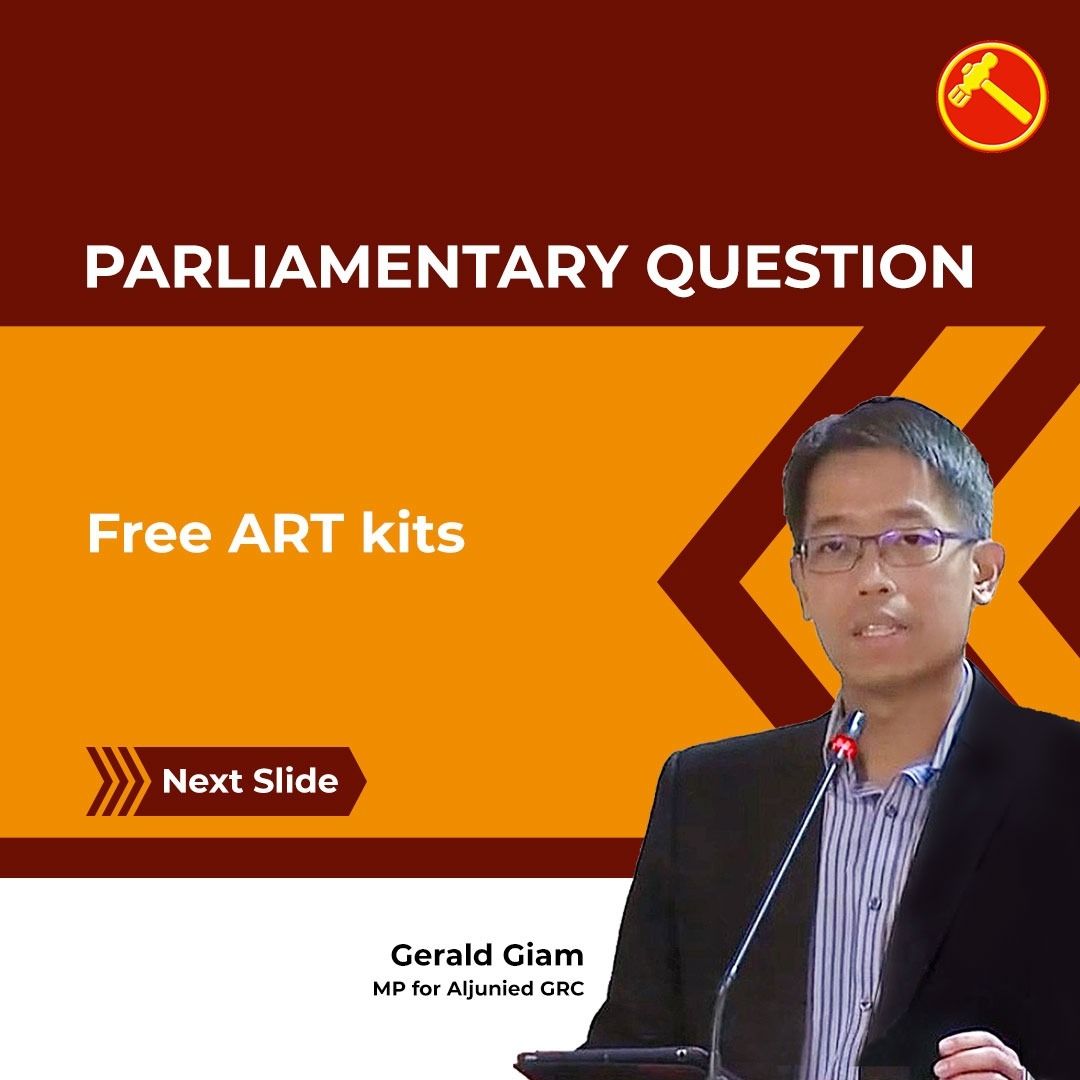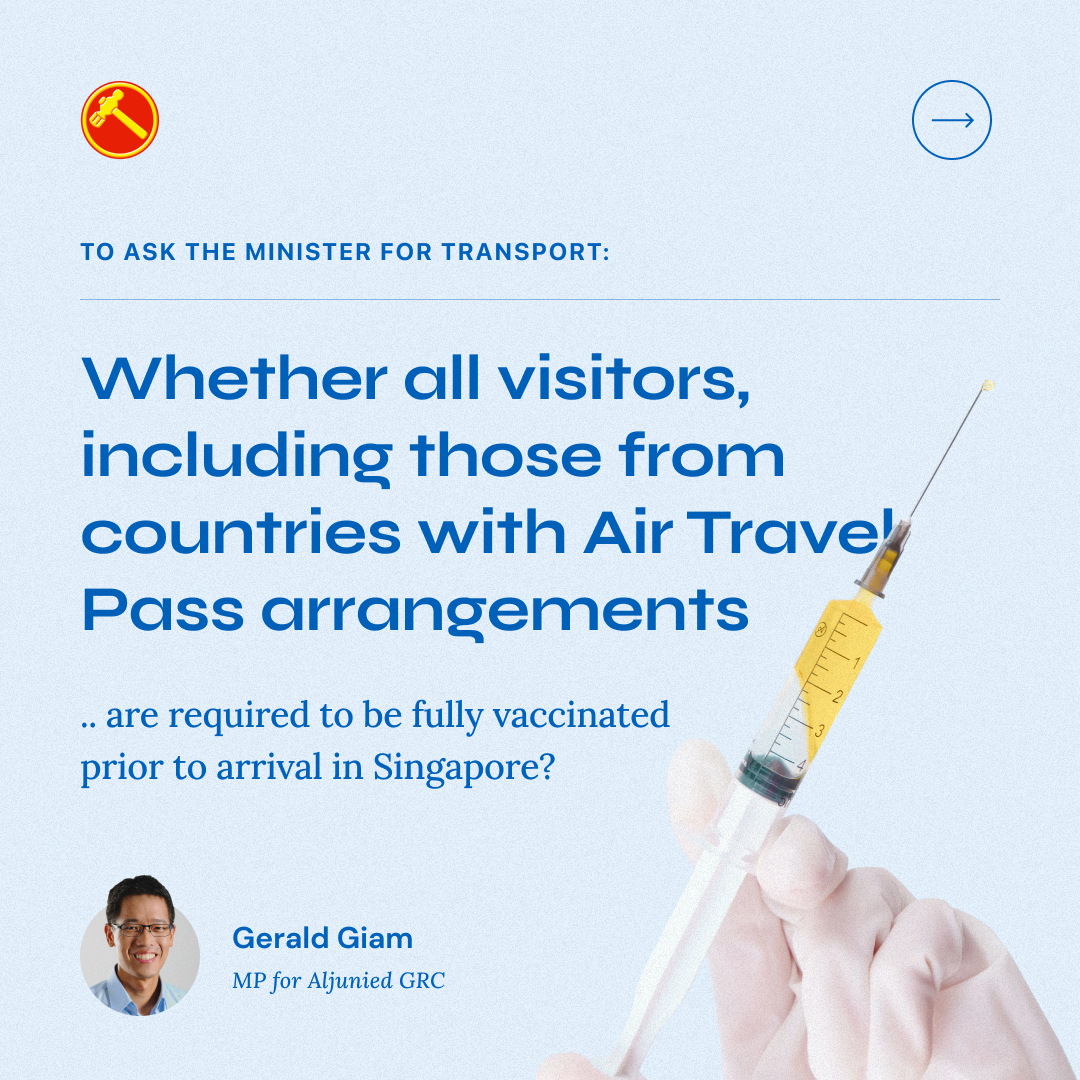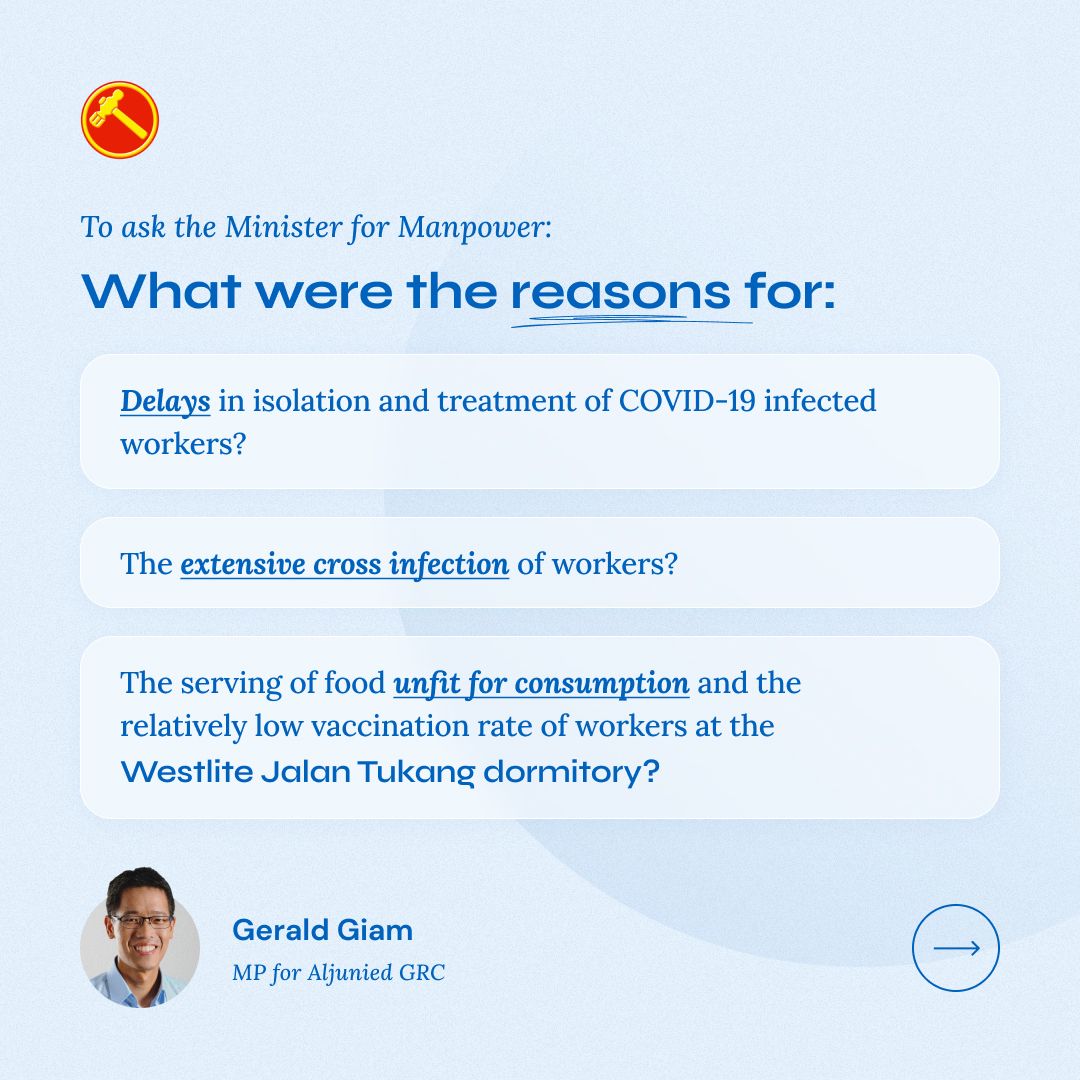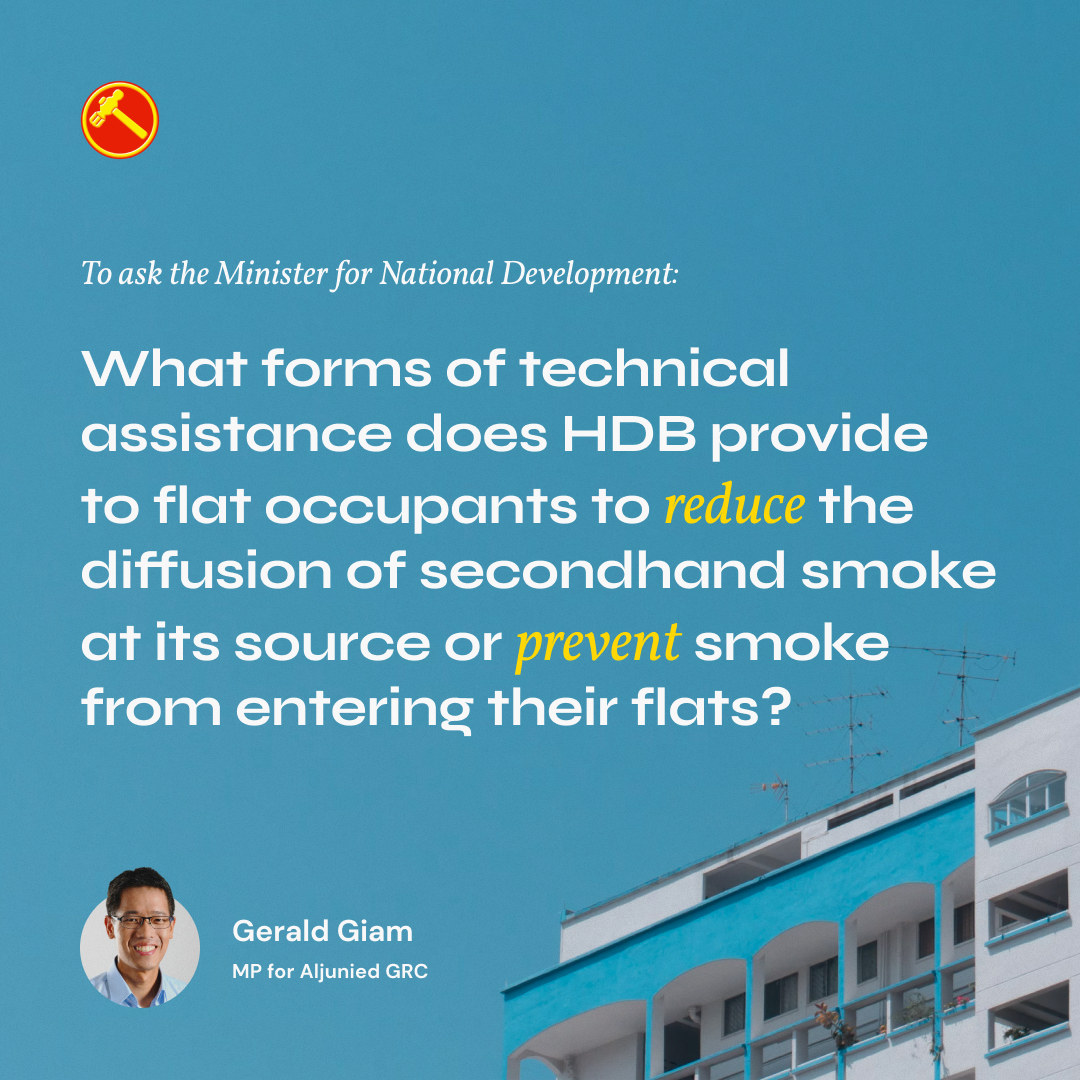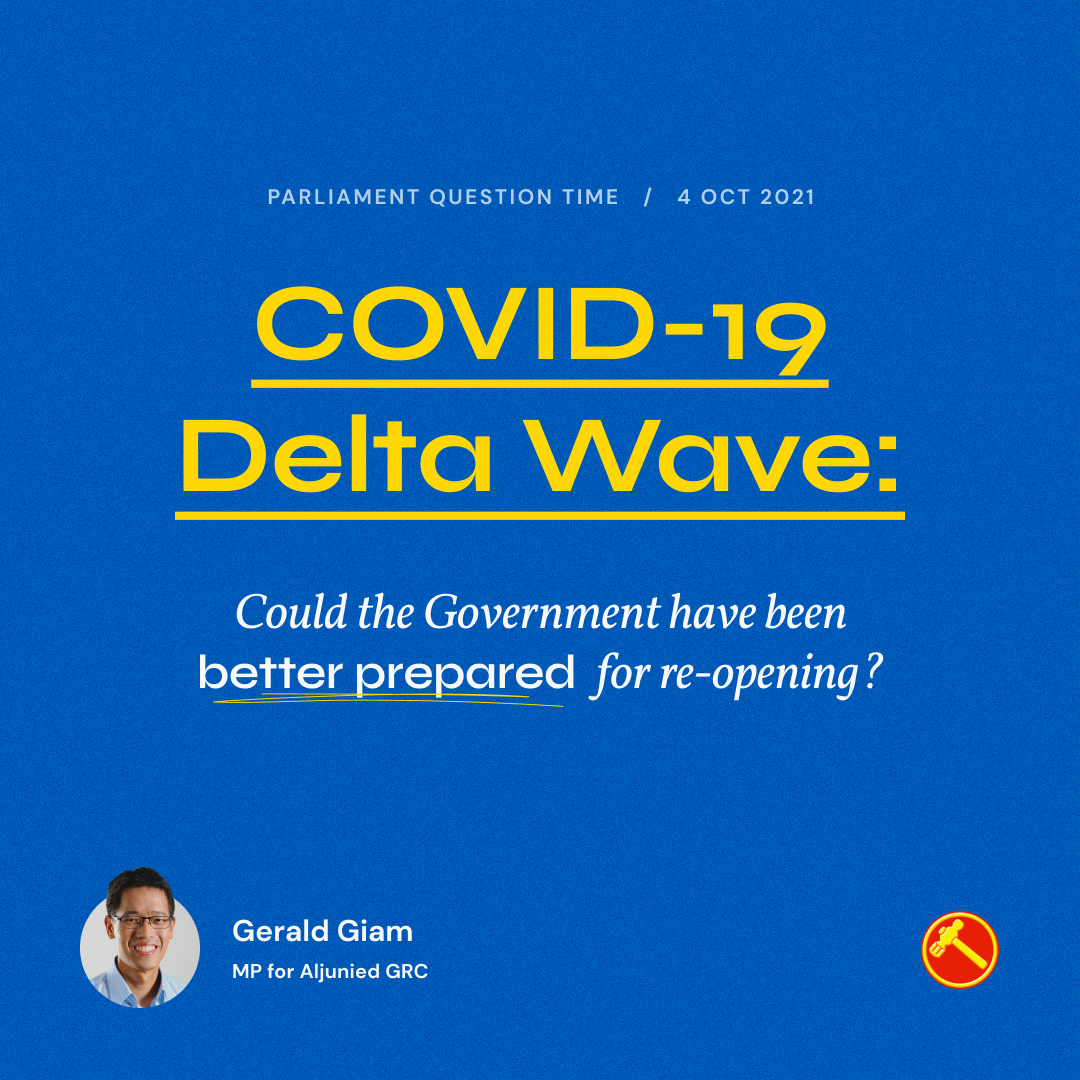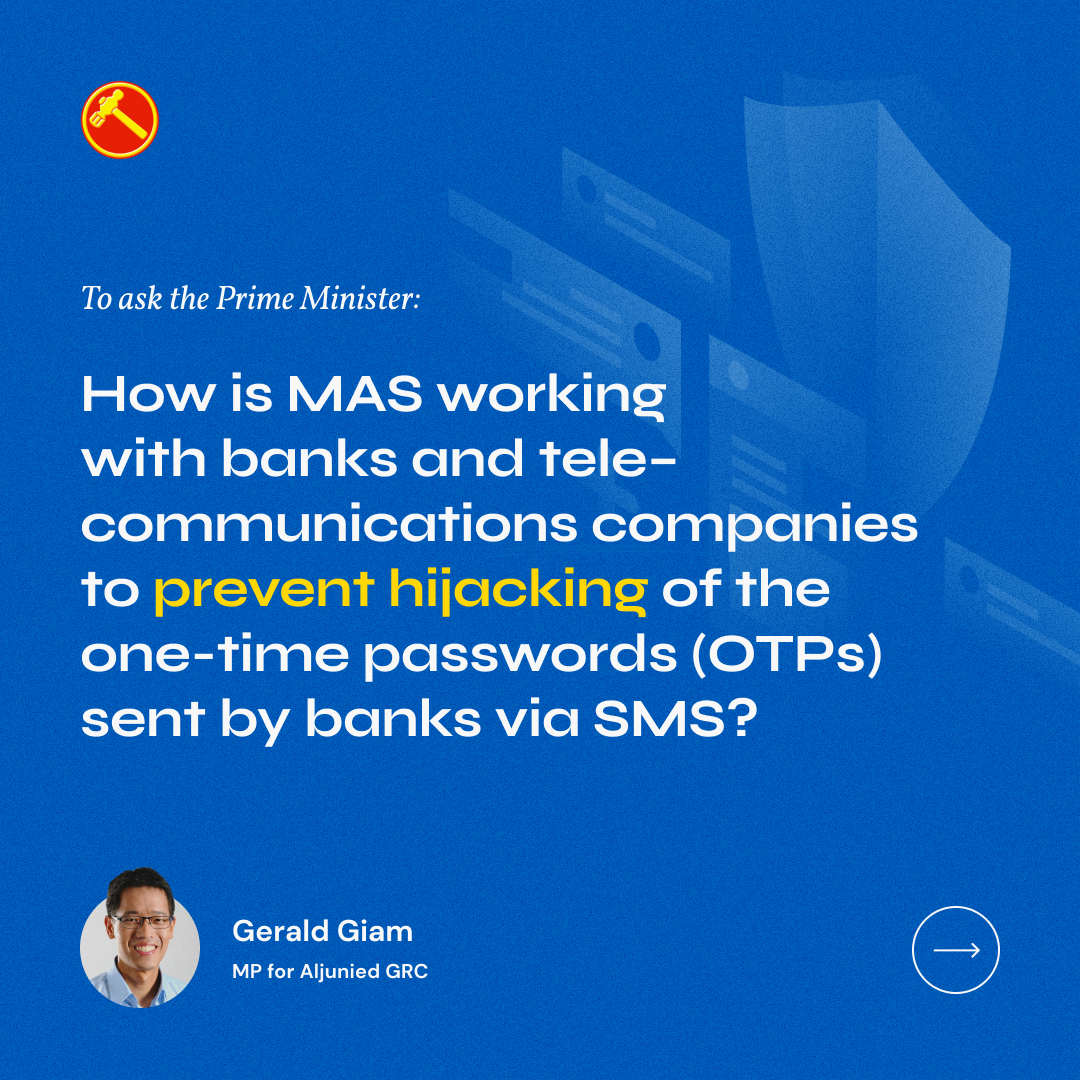The recent natural gas supply disruptions and consequential increase in electricity prices have brought to the fore the importance of strengthening our nation’s energy resilience.
To-date, five electricity retailers will be dimming their lights and others have stopped accepting new customers. This has impacted over 150,000 customers, who will most likely have to pay more for electricity in the coming months.
This may be just the tip of the iceberg of people affected by increasing electricity prices. About 714,000 households which had not previously switched to a retailer in the Open Electricity Market are paying a regulated electricity tariff which has increased by 32% since last September. According to the answer to a Parliamentary Question I asked in January, 79% of HDB 1-2 room households and 63% of 3-roomers are paying the regulated tariff, compared to just 40% of those living in landed properties. This indicates that lower income Singaporeans may be disproportionately impacted by higher electricity prices.
Other households which have locked in lower rates in their retail contracts will soon face their day of reckoning when they renew their contracts, as the new rates will reflect the higher prevailing electricity prices.
This electricity price hike couldn’t have come at a worse time for many households. Our economy has yet to fully recover from the pandemic-induced downturn, and many Singaporeans are still struggling with job losses, salary reductions and disrupted careers. Many are working and studying from home, resulting in higher household electricity usage.
I would like to reiterate the request I made yesterday for lower income households to be given a one-off special additional electricity rebate during this difficult period. This should be on top of existing U-save rebates, which were calculated before the current electricity price increases occurred. I appreciate Minister Tan See Leng’s reply yesterday that he is exploring with MOF further means to help and is working out the details with them.
The current electricity price increase can be traced to disruptions in the supply of natural gas to Singapore and higher demand globally. In the last few months, the curtailment of the flow of gas from Indonesia’s West Natuna gas field and the low landing pressure of the gas supplied from South Sumatra has severely impacted a vital source of our power generation needs.
Questions on the Bill
The Energy (Resilience Measures and Miscellaneous Amendments) Bill that is before the House today is timely as it seeks to better safeguard Singapore’s energy security. It enables the Energy Market Authority (EMA) to construct, acquire, manage and protect electricity infrastructure and authorises EMA to implement policies to reduce the emission of greenhouse gases in the generation of electricity.
It is comforting to know that EMA will be able to step in to build, own and operate power generation plants if needed. However in practice, this will be done only as a last resort, for example, if existing gencos fail in their roles? Or is EMA already making plans to directly build and operate critical electricity infrastructure like undersea cables to import electricity from overseas?
I note the Minister just said in his Second Reading speech that the Government’s preference is for the private sector to build, own and operate electricity infrastructure, and that before exercising this power, EMA will explore the options available.
The Minister also just assured the House that EMA will put in place governance structures to mitigate conflicts of interest. Can he elaborate on what these governance structures will be to ensure fair competition in the electricity market and mitigate conflicts of interest?
The Government has announced plans to embark on a multi-decade programme to transition our electricity generation to low-carbon generation sources through four supply “switches”.
These are, first, by increasing the energy efficiency of natural gas power plants. Second, by accelerating solar deployment. Third, by tapping on regional power grids for low-carbon electricity imports. And fourth, by developing low-carbon solutions such as hydrogen and carbon capture, utilisation and storage (also known as CCUS).
Heavy reliance on natural gas
About 95% of our electricity is generated from imported natural gas. This is unusually high compared to other countries and it carries concentration risks.
Recently, the tiny European nation of Moldova, which gets almost all its gas from Russia, had to declare a state of emergency over a gas shortage. The Russian state gas giant, Gazprom, hiked its prices four-fold, then reduced supply when Moldova refused to pay. Moscow has been accused of “weaponizing” its gas monopoly in Moldova, which recently elected a pro-Western president and parliament.
In Singapore, around 70% of our natural gas is piped from Malaysia and Indonesia. Will we face similar threats should relations with our neighbours get rocky, as they do from time-to-time?
In fact, it may already be happening even in the absence of diplomatic problems. In February 2020, the Indonesian government announced that it intends to halt gas exports to Singapore by 2023, when one of our two gas pipeline contracts expires. This ought to set off alarm bells, given our heavy reliance on Indonesian piped natural gas.
Over the years, Singapore has worked hard to diversify our national water taps away from an overreliance on imported water from Malaysia, to ensure a more robust and sustainable water supply. We need to do the same for our energy supply switches.
How will the Government diversify our current 95% dependence on imported national gas for power generation?
Clearly, we cannot afford to shift back to dirty fuels like oil and coal, which in any case also need to be imported. Therefore our future lies in a greater reliance on renewable energy.
Political risk of energy imports
The third supply switch envisions tapping on regional power grids for clean energy imports. Singapore is planning to import up to four gigawatts of low-carbon electricity by 2035, which is expected to make up around 30% of Singapore’s electricity supply.
However, the proposed import of electricity generated from solar farms in Australia’s Northern Territory will be via undersea cables running through Indonesian waters. This could present the same political risks as transnational gas pipelines. The Indonesian government had to approve the undersea cable route last September, and it is unclear how long this approval will be for.
On 22 October, Malaysia announced that it will not allow renewable energy exports to Singapore. Their former prime minister Tun Dr Mahathir Mohamed questioned why non-renewable energy exports to Singapore were allowed.
Australian support for the export of renewable energy to Singapore may also wane with political winds. Some NUS researchers recently warned that the Australian government may suffer some push back from its powerful coal lobby.
On the flip side, even countries which support the development of renewables might prefer to use their clean energy domestically to meet their own net-zero pledges.
With Singapore potentially sandwiched between competing interests that we have no control over, how will the Government manage the political risks associated with importing 30% of our electricity in the future?
More ambitious renewable energy goals
With both natural gas and electricity imports carrying risks, we need to strengthen our indigenous capabilities to produce clean energy.
Our geography and highly urban landscape limits our renewable energy options. We don’t have wide open deserts to set up large solar farms, but we have plenty of building rooftops and intense tropical sunlight.
Solar power, however, tends to be intermittent. When the sun stops shining, the electrons also stop flowing. Fortunately battery technology has improved tremendously in recent years, driven by the growth in electric cars. At the same time, the price of lithium-ion batteries is expected to fall 45% between 2018 and 2030. Better energy storage systems will smooth out of the imbalances between supply and demand of solar power.
EMA has said that it is targeting a 2 gigawatt-peak of solar energy by 2030. Yet even if this target is met, solar will supply only around 3% of our total electricity demand.
Is this really the best we can achieve with solar? Are we planning for a large-scale deployment of solar panels on building rooftops, reservoirs and even offshore islands? Are we providing companies sufficient incentives to boost adoption of energy storage systems that are paired with solar installations?
Besides solar energy, have we done a deep dive to explore other renewables like tidal energy, geothermal energy and offshore wind farms?
We don’t have very much time to diversify our energy sources away from natural gas. As countries shut down their pollutive coal-fired power plants, natural gas will increasingly be used as a transition fuel. This will reduce the supply available to us and raise its price.
The Government, industry and our people need to double down to innovate and come up with more clean energy solutions to diversify our energy mix, strengthen our energy resilience and meet our climate change pledges.
Singapore’s energy transition must be accelerated and managed well, to ensure that our lights stay on and our electricity bills remain affordable.
Sir, I support the Bill.
The above was a speech I delivered on 2 Nov 2021 in Parliament during the debate on the Energy (Resilience Measures and Miscellaneous Amendments) Bill.

